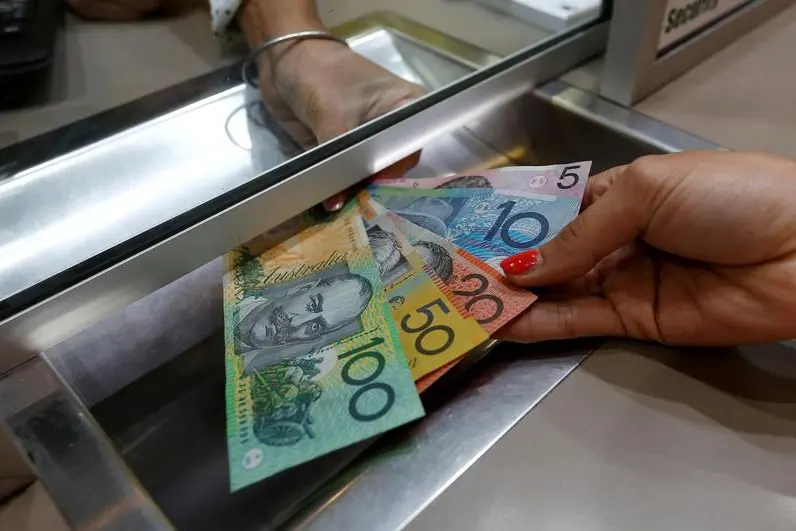PHOTO
The Australian and New Zealand dollars edged lower on Tuesday as China's big mortgage rate cut failed to draw much excitement from investors, while a still cautious central bank Down Under reinforced bets that any rate relief could be some way off.
The Aussie slipped 0.2% to $0.6525, having eked out a modest 0.1% gain overnight. It has been trading in the low 65 cents for most of the past two weeks, and a break above the 21-day moving average of $0.6539 would be positive.
The kiwi dollar eased 0.3% to $0.6134, after rising 0.4% overnight to as far as $0.6153. It has support at $0.6040.
China on Tuesday made a big cut to its benchmark reference rate for mortgages, in a powerful signal the authorities are ramping up efforts to revive the property market. The five-year loan prime rate was lowered by 25 basis points to 3.95% from 4.20% previously,
However, the move failed to bolster sentiment, with Chinese stocks in the red, the yuan still struggling and commodity prices such as iron ore and copper falling.
Sean Callow, a senior currency strategist at Westpac, said it is likely that traders of the Australian dollar are wary of the lack of inspiration from onshore markets.
"One thing that makes it tricky is that AUD and CNH usually correlate pretty solidly intraday. And while a rate cut should be welcomed as a sign of action to support the economy, it chips away at the yuan's yield appeal at a time when the Fed is in no hurry to ease."
Down Under, the minutes of the Reserve Bank of Australia's February policy meeting showed that the central bank needed more time to be confident that inflation was heading back to its target before ruling out any further rate rise.
That is one reason that markets see that rate cuts are still some way off, even though they are confident that the tightening cycle is over. A rate cut is seen unlikely until August or September.
"We didn't learn much that was new from the February minutes," said Taylor Nugent, a senior economist at National Australia Bank.
"We expect the board to take a cautious approach to easing policy settings. By November, the combination of higher unemployment and inflation nearing the target range should be enough for the RBA to begin to move."
(Reporting by Stella Qiu; Editing by Jacqueline Wong)





















